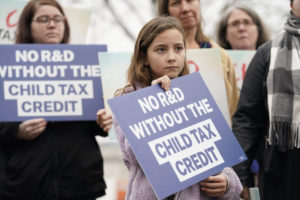Childhood Poverty Soars in Oakland
Childhood suffering is on the rise in Oakland, where the U.S. Census Bureau found nearly three in 10 children living in poverty, more than double the number recorded three years ago. The city has the highest rate of child destitution in the Bay Area.
Childhood suffering is on the rise in Oakland, where the U.S. Census Bureau found nearly three in 10 children living in poverty, more than double the number recorded three years ago. The city has the highest rate of child destitution in the Bay Area.
The national poverty level sits at $22,113 for a family of four with at least two people under age 18. Raising a family on such an income is unthinkable, analysts say.
The problems associated with poverty are likely to follow these youngsters throughout some if not the whole of their lives: hunger, chronic anxiety, poor grades, depression, abuse, unemployment, trouble with the law and a sense of having been abandoned as their middle-class peers flee the city for better schools and safer neighborhoods elsewhere. –ARK
Your support matters…The Bay Citizen:
The number of school-aged children living in Oakland declined significantly over the past decade, the census shows — from approximately 80,000 a decade ago to fewer than 60,000 in 2010, with 46,000 attending Oakland’s public schools.
“A lot of people in my classroom are moving away to Concord,” said Kay Swenson, who teaches kindergarten at Sankofa Academy near Bushrod Park in North Oakland.
What’s left are families that are too poor to move, she said, while the young, mostly-white professionals who are moving in to the neighborhood do not have children, or do not send their children to Oakland’s public schools.
Independent journalism is under threat and overshadowed by heavily funded mainstream media.
You can help level the playing field. Become a member.
Your tax-deductible contribution keeps us digging beneath the headlines to give you thought-provoking, investigative reporting and analysis that unearths what's really happening- without compromise.
Give today to support our courageous, independent journalists.






You need to be a supporter to comment.
There are currently no responses to this article.
Be the first to respond.